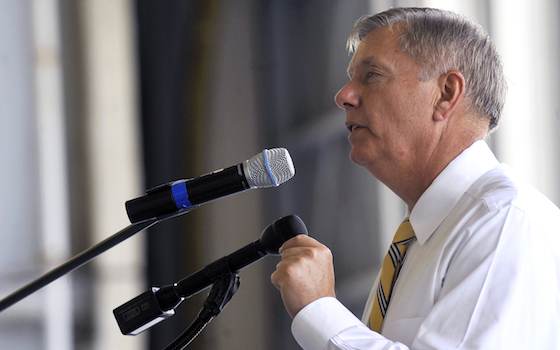- MENU
- HOME
- SEARCH
- WORLD
- MAIN
- AFRICA
- ASIA
- BALKANS
- EUROPE
- LATIN AMERICA
- MIDDLE EAST
- United Kingdom
- United States
- Argentina
- Australia
- Austria
- Benelux
- Brazil
- Canada
- China
- France
- Germany
- Greece
- Hungary
- India
- Indonesia
- Ireland
- Israel
- Italy
- Japan
- Korea
- Mexico
- New Zealand
- Pakistan
- Philippines
- Poland
- Russia
- South Africa
- Spain
- Taiwan
- Turkey
- USA
- BUSINESS
- WEALTH
- STOCKS
- TECH
- HEALTH
- LIFESTYLE
- ENTERTAINMENT
- SPORTS
- RSS
- iHaveNet.com: Politics

Beating The Dead Horse Called Benghazi
by Jules Witcover
After endlessly trying to repeal and replace "Obamacare," the
The name of the Libyan city where an American ambassador and three consulate officials were killed in a terrorist raid on Sept. 11, 2012 has become shorthand for what Republicans argue is a continuing political cover-up by the Obama administration. They charge that it continues to hide its incompetence in responding to the attack and attempted deception in the aftermath.
The allegation was first raised, and has been determinedly maintained, by Sens. John McCain and Lindsey Graham and by Rep. Darrell Issa, the latter heading a House investigating committee into the matter. Now House Speaker John Boehner has called for a separate select House committee, a proposal that has only generated more partisan haggling.
Some Democratic congressional leaders are threatening to boycott the proposed committee. House Minority Leader Nancy Pelosi has asked for equal party representation on it, but with Boehner holding the House majority, why would he want to grant that?
The impetus for the latest
The dispute grew out of Rice's first televised remarks after the attack, in which she stated that the attack appeared to be triggered by a video disparaging the Muslim prophet Muhammad rather than a planned terrorist operation.
Rhodes' email for Rice indicated its goal was "to underscore that these protests are rooted in an Internet video and not a broader failure of policy." It added that "since we began to see protests in response to this Internet video, the president directed the administration to take a number of steps. His top priority has been the safety and security of all Americans serving abroad."
"Benghazi" quickly became the code word for Republican allegations of inadequate security at the U.S. consulate there. The charge was used against Obama in his 2012 campaign for re-election, and now is being repeated indirectly against then Secretary of State Hillary Clinton as an anticipated presidential candidate in 2016.
When the Rhodes email became public, Jay Carney, the
While many politicians and arguably most of the country have moved on to other more immediate problems and crises such as a still sluggish domestic economy and a potential new war in Ukraine, crying "Benghazi" seems only the latest case of beating a dead political horse.
Ever since Republicans wailed over "who lost China" and "who lost Vietnam" in the last century, the tactic of flogging political cadavers has been a staple of both parties.
During his communist-hunting heyday in the 1950s, Sen. Joseph McCarthy raised hue and cry over the commission of an obscure, suspected
Playing the "Benghazi card" may well produce the same result by the time the next presidential campaign rolls around, even if Hillary Clinton is actively seeking the Democratic nomination by then or has it locked up, as many in her party seem to believe will happen.
As for playing the same card against Obama to frustrate him for the rest of his second term, there are plenty of other political targets available at home and abroad to keep him on the defensive, as his stalled standing in the polls continues to attest.
Available at Amazon.com:
Six Amendments: How and Why We Should Change the Constitution
Receive our political analysis by email by subscribing here
AMERICAN POLITICS
WORLD | AFRICA | ASIA | EUROPE | LATIN AMERICA | MIDDLE EAST | UNITED STATES | ECONOMICS | EDUCATION | ENVIRONMENT | FOREIGN POLICY | POLITICS
Article: Copyright ©, Tribune Content Agency
Beating The Dead Horse Called Benghazi